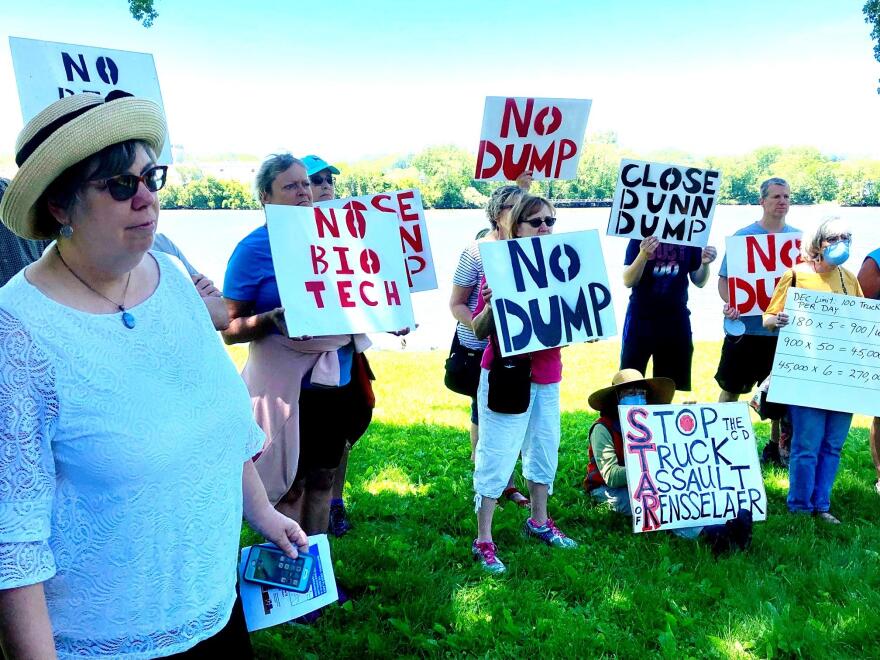The city of Rensselaer, which has seen its share of environmental threats, could be facing another.
In October, BioHiTech Global, Inc., based in Rockland County, announced it had acquired an interest in a 45-acre industrial zoned property located in an economic opportunity zone in Rensselaer, New York. The 72,000-square foot facility off Riverside Avenue at the old BASF site would turn municipal waste into fuel.
The New York State Department of Environmental Conservation previously denied permits for the project, and the City of Rensselaer is requiring a new environmental review process. But the idea that the plan could resurface has alarmed activists like Rensselaer Environmental Coalition Chairman Dave Ellis.
"It's relying on a new technology that has only been tested once before in the entire country. 82 truck trips of solid municipal waste, trash, from around the Capital Region will come to the facility each day and will be dumped into two massive pits inside of the enclosed building that is supposed to be 'environmentally friendly' and prevent any toxic air from escaping."
In a press release, BioHiTech says its potential development of New York's first sustainable waste conversion facility is similar to an existing BioHiTech plant in Martinsburg, West Virginia.
A dredging program has been going on across the road from the site for the last couple of years to remove PCB contamination from the Hudson River.
Former EPA Regional Administrator Judith Enck says BASF still owns the heavily polluted property.
"They want to bring in 150,000 tons of municipal solid waste every year, dumping it in two big pits which would be inside large buildings. Somehow they would pull out the paper and plastic. They would dry that, shred it so it was the size of confetti, and then truck it to a cement plant to be burned. The company says they're looking at Lafarge cement plant in Pennsylvania and one other cement plant in Pennsylvania. However, they would not rule out burning the plastic and the paper at the Coeymans, New York Lafarge cement plant."
Enck says just because BioHiTech “slapped on a few solar panels at the property and they will be applying for state subsidies now does not make this ill-advised project any better."
Asked for comment, the DEC says it subjects all applications for proposed projects to a rigorous review to ensure public health and the environment are protected. The DEC added that it has not received an application for permits related to this particular incarnation of the project.
BioHiTech Global did not immediately respond to a request for comment.






